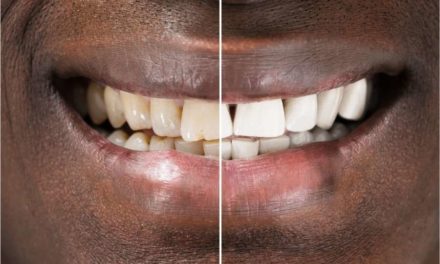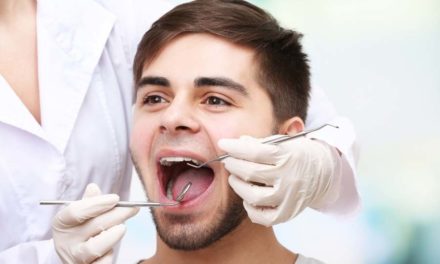Missing teeth not only affect your smile. Without a suitable replacement, it can result in bone loss and cause surrounding teeth to shift out of their position. Fortunately, dental implants replace tooth roots and can withstand biting and chewing forces.
Unfortunately, not everyone can get dental implants. You may not qualify for the procedure if you do not have sufficient bone. Fortunately, mini implants solve this problem. Mini implants are less invasive, heal faster, and are ideal for patients without enough jawbone.
Kindly read further to learn more about mini implants.
Dental Implants Overview
Dental implants are a restorative treatment for missing teeth. These implants are strong screws that replace tooth roots for one or multiple missing teeth. Dentists at Dentakay dental clinic place implants in the jawbone where they fuse and mimic natural tooth roots. Furthermore, implants are permanent and can withstand biting and chewing forces.
Although conventional dental implants are great for restoring missing teeth, the placement procedure is invasive and time-consuming. In addition, because the procedure may take up to eight months, some patients may seek other solutions. Furthermore, not everyone with missing teeth qualifies for dental implants.
Fortunately, mini dental implants offer several benefits over conventional implants. In addition, patients do not need as much bone density for this type of implant as traditional dental implants.
What Are Mini Implants?
Mini dental implants are similar to traditional implants. However, they are smaller in size and suitable for patients that cannot get conventional implants due to bone loss. In addition, mini dental implants are less invasive, and dentists place them over the gum surface. Consequently, the procedure requires the use of only local anaesthesia.
Pros And Cons Of Mini Implants
Mini implants are great for replacing tooth roots. Nevertheless, they have their advantages and disadvantages. Consequently, before getting the procedure, your dentist will weigh the pros and cons before qualifying you.
Pros Of Mini Dental Implants
The most significant advantage of mini dental implants is the length of the procedure. Usually, you can get these implants in a single visit to the dentist. In addition, mini implants may be suitable if you do not have sufficient jawbone for conventional implants.
Another benefit of mini implants is the minimal invasiveness, which results in less downtime and faster recovery. In addition, you will only experience minimal discomfort post-surgery. Finally, mini implants are smaller and use less material compared to traditional dental implants. Consequently, they are more affordable.
Cons Of Mini Dental Implants
Mini implants are not as stable as conventional implants. Therefore, you may need multiple mini implants to support your dentures or dental bridge. Also, people with bruxism cannot get mini implants because these prosthetics wear down faster than regular implants.
Furthermore, you must have a healthy jawbone to qualify for mini implants. Mini implants are also designed for short-term use. Therefore, you will need to remove or replace them with time. Moreover, the implants are susceptible to fracturing, especially in people who smoke.
Who Is A Candidate For Mini Implants?
If you have a missing tooth, you may qualify for mini implants. In addition, people with less bone density and who do not qualify for traditional dental implants may be great candidates for mini implants. Furthermore, mini implants should be great if you already have dentures.
Nevertheless, you still have to consult your dentist and undergo a complete dental examination to be sure you qualify for mini dental implants.
Mini Implants Procedure
Before getting mini implants, you have to consult with your dentist. First, your dentist will examine your oral health and history to determine if you are a good candidate for mini implants. You may also undergo X-rays and CT scans to assess your bone density. Then, if you qualify for the implants, your dentist will develop a treatment plan that suits you.
The next step is surgery. First, your dentist will administer local anaesthesia to the surgical site, numbing the area. Afterwards, the dentist will make a small incision on your gum, exposing the bone. Next, the dentist uses a drill to make a small opening to accommodate the mini implant.
After placing the implant, your dentist will secure the implant post and attach the replacement tooth to the post. You may not get sutured or stitches after getting the implants.
How To Care For Your Mini Implants
Caring for mini implants is as simple as caring for your natural teeth. Brushing and flossing daily is essential. It is best to use a soft-bristled toothbrush if your gums become more sensitive after the procedure.
Furthermore, ensure you get regular dental cleanings and checkups to maintain your oral health. You should also avoid biting your nails or opening bottles with your teeth, as these can damage your mini dental implants. Finally, ensure you follow your dentist’s instructions on maintaining your implants. We also advise you to read Mini Dental Implants: Everything You Should Know for further information.
Mini Implants Aftercare
After getting your implants, you should be able to return to your normal activities within a day or two. You may experience swelling and discomfort after the procedure, but over-the-counter pain relievers can help with the pain.
Furthermore, it is best to avoid hard or sticky foods. You should also eat soft foods till you are fully recovered. Your dentist will also inform you when you can resume a varied diet.
Suppose you notice signs of complications like severe pain lasting more than a few days, a numb jaw, or a loose tooth. In that case, it is best to visit your dentist immediately.
Get Your Mini Implants Today!
If you have missing teeth, it is ideal for getting a replacement to prevent further deterioration of your oral health. Fortunately, mini implants are less invasive, affordable, and can be installed in a single visit to the dentist. Therefore, visit a dentist for a consultation to know if you qualify for the implants.
You can also search for a phrase like “dentist near me queens village” on the internet to get a list of dental professionals around your area.















